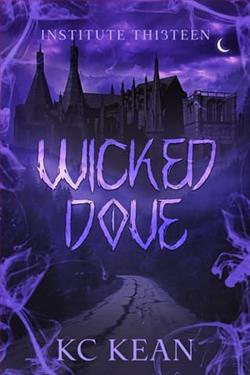Page 156 of The Armor of Light
‘Thank you for pointing that out, Mr Hornbeam. I will repeat your argument, for it is very important. My friends, Mr Hornbeam correctly states that it is difficult to prove conspiracy unless the accused are made to testify against themselves. And that is why the clause is essential. Perhaps, my friends, that is also why this clause appliesonly to working men and not to their masters!’
They roared their indignation.
Sal realized that Hornbeam had never come up against someone of Keithley’s calibre. This was a man with formidable skill in debate – he was better even than Spade, who was the best in Kingsbridge. Hornbeam normally got his way by intimidation, not argument. Today he was outclassed.
Hornbeam said desperately: ‘There’s provision for appeal.’
‘Thank you, Mr Hornbeam. You are making my speech for me. Mr Hornbeam reminds me that a worker convicted under this law can appeal against his conviction. That’s fair, isn’t it? All he needs to do isto pay twenty pounds.’
The crowd burst out laughing. No mill worker had ever held twenty pounds in their hands.
‘If by some mischance that worker does not happen to have twenty pounds put by...’ Now the laughter had a jeering quality, and Hornbeam reddened. He was being humiliated publicly. ‘Perhaps that worker could get a group of supporters together to try to raise the twenty pounds. It’s a lot of money, but they might manage it – except that by doing thatthey would be entering into a combination and therefore they would be breaking the law!’
Someone shouted: ‘So they’ve got us coming and going!’
‘One more thing,’ Keithley said. ‘Some of you may have paid money into a fund held by a trade union or similar group.’ Sal nodded. The union had collected money to support the strikers. Because the strike had ended quickly, there was some left.
Keithley said: ‘And what do you think the bill says?’ He paused dramatically. ‘The government will take that money!’
‘Bloody thieves!’ someone shouted.
Hornbeam stood up, left his place, and walked towards the exit.
Keithley pointed at him and said: ‘That is Mr Hornbeam’s idea of justice.’
Hornbeam’s face was now flaming red.
As Hornbeam disappeared through the door, Keithley said: ‘It also seems to be the prime minister’s idea of justice. But it is not my idea of justice, and I suspect it is not yours.’
Shouts of agreement came from the audience.
‘If it is not your idea of justice, you may like to sign the petition.’ Keithley pointed to Elsie at the side of the room. ‘Mrs Mackintosh has paper and ink. Please write your name, or make a cross and allow Mrs Mackintosh to write your name.’ People began to stand up and make their way to Elsie’s table. Keithley raised his voice. ‘Tomorrow I will carry your petition to London and do my utmost to persuade Parliament to take notice of it.’
The line that formed at Elsie’s table already included more than half the audience.
Sal was deeply satisfied. The legislation had been explained vividly. No one was in any doubt about its vicious intent.
Frank Fishwick stood up to speak. ‘As mayor of Kingsbridge, I would like to thank Mr Keithley,’ he began.
No one was listening, and Mayor Fishwick gave up.
*
Spade was pleased. The government had tried to slip the new law through without the people noticing, but they had failed. Keithley had made the danger crystal clear and the bill would not pass without trouble.
While hundreds of hands were patiently queueing to sign, Keithley said to Spade: ‘Would you be able to come to London with me tomorrow?’
Spade was surprised, but after a moment’s thought he said: ‘Yes. Not for long, but I could go.’
‘It may be useful to have a Kingsbridge man on hand in case a parliamentary committee should wish to take evidence straight, as it were, from the horse’s mouth.’
‘Very well.’
Charles Midwinter approached, and Spade introduced him. ‘Pastor Midwinter is treasurer of the union formed by Hornbeam’s weavers,’ he explained.
They shook hands, and Charles said: ‘A question, if I may, Mr Keithley?’
‘Of course.’















